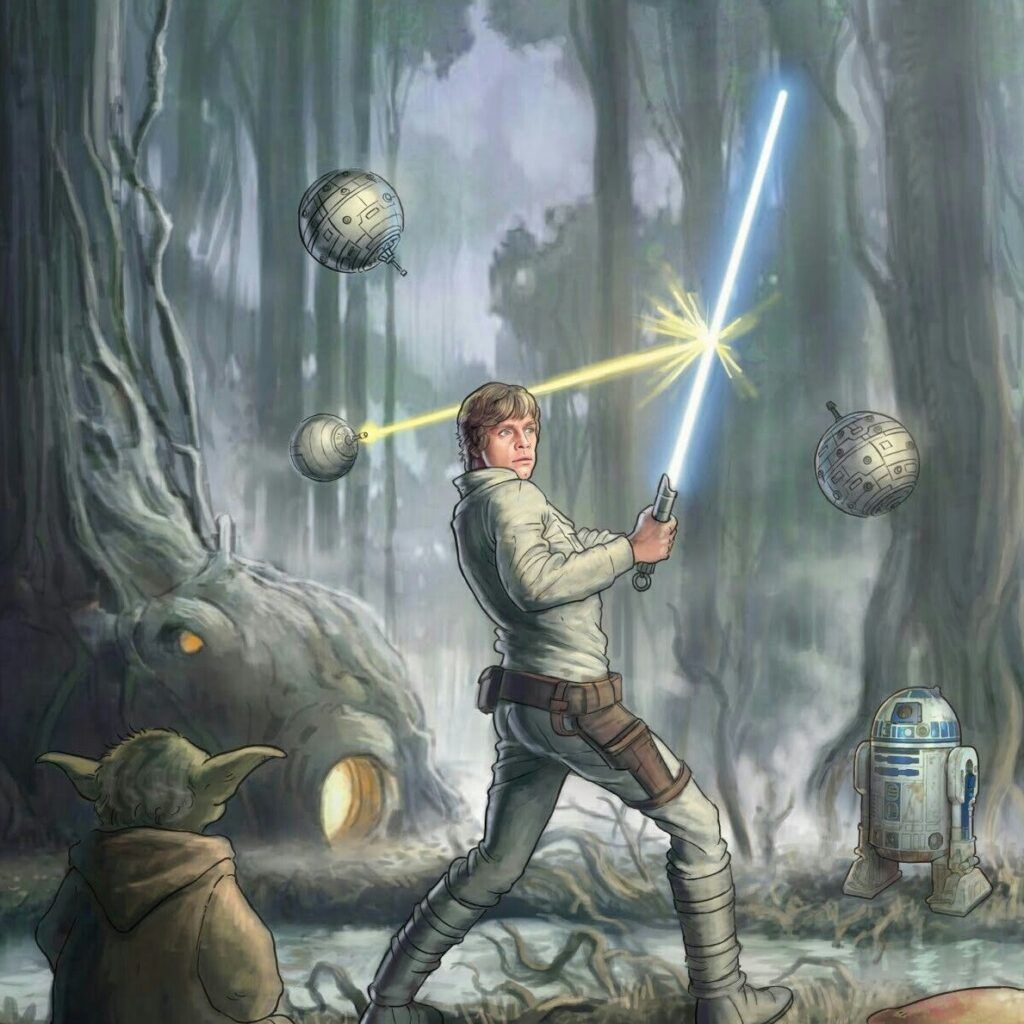
Trending Today

The Star Wars Legion tournament circuit is heating up, with the Las Vegas Open and Legion Worlds at Adepticon just around the corner in the next couple of months. Numerous Prime Championships are also scheduled for this time period. In this article we’ll talk about what to do before you go to a tournament, how to prepare, what to expect, and how to act once you get there.
We’re going to hit a few general topic areas here: prepping yourself, prepping your minis, practicing, and being a good sport.
But first, let us take a brief trip down memory lane.
The year was 2017. I was a young(er) lad with a little more pepper and a lot less salt, and I was just getting back into miniatures gaming after a bit of a multi-year sabbatical. I’ve been playing 40k on and off casually for the better part of 20 years; 8th edition just hit. What better time to dust off those old minis and dive head first into a ginormous tournament with no practice whatsoever?
NOVA Open is one of the largest 40k tournaments in the country, and it happens to be right in my backyard, so I figured it was a good place to start. I had never actually been to any convention tournament before, so it was a little intimidating. I was going to be expected to play 6-8 games over three days after having played maybe that many total over the past five years. What was I to expect?
Well… I went in with no expectations, an attitude focused on learning and having fun, and a couple of Cliff bars. I also had myself a decent carrying case from back in the day, which was super handy (more on that later).
The no expectations, having fun part turned out to be super critical, because I went 0-6. Not the best showing. But I also had a blast, met a ton of fun people, and got the convention bug. I resolved to practice and actually win a game next year.
Legion
I never got that chance; because this amazing game called Legion came out, and I ended up playing that at NOVA in 2018 and I’ve been addicted ever since. Since then I’ve attended NOVA (two more times) High Command at Adepticon, Worlds, Northeast Open, LVO, and several locals, all in the space of a little over a calendar year after having never done any convention tournaments prior to my gateway drug of NOVA. I’ve slowly picked up some tournament tips over that time period. Hopefully you will find them helpful if you are new to the tournament scene yourself.
Make sure you set expectations for yourself. What are you looking to accomplish at this upcoming event? This goes beyond just how many games you hope to win or what prizes you want to attain. This is primarily about focus, and making sure you have an open mind and a good attitude. Expectations are important regardless of what type of tournament you are going to, whether it is a local store tourney or a big convention.
The first thing you are going to need at a tournament is your gear. This includes your minis, your range rulers and movement tools, your dice, your cards, and any other gaming aids you want to bring, such as line lasers (I would highly recommend one of those). You can get a cheap line laser at hardware stores like Harbor Freight, or you can spring for a fancier one designed for gaming. I find the former to be more than adequate.
If you are traveling for your event (especially by air) you are going to need some kind of carrying case. There are a ton of them out there. I prefer the magnetic variety, and I use one that I got from a random vendor at Historicon many years ago. My minis all have washers on the bottom of them so they stick to the magnetic sheets in my case.
You can also opt for foam, which is usually cheaper but a little more time consuming to extract your models from when you set up, and a little more fiddly to actually store models in, since you have to have the holes appropriately sized for your individual minis. Time is an important resource at a tournament; make sure whatever your mini carrying solution is, you practice pulling out your models and your gear and putting it back before your games.
I’ve collected some specific examples of carrying solutions from my colleagues, pics of which are at the end of this article.
Zach also wrote an excellent, in depth article about how he did he custom carrying solution, which you can find here.
You are going to want some kind of storage solution for your cards; one that enables you to just pull them straight onto the side of the table, pre-organized and with the units they belong to in your list.
There are basically two ways to do this; sleeves (organized by unit) and trays (also organized by unit). The former is somewhat cheaper, but also more complicated for things like flip and exhaust cards, since you can’t access them easily in game. The trays are a little pricier but I prefer them, personally. FFG has handed out a few for swag, but you will likely need to go to Etsy to fill out enough to have your entire army in.
Legally, you must have your cards out on the table for each game; trays or sleeves allow you to get them all out there quickly. Make sure you put the right cards and units in your trays the night before…
Usually you can fit these bits in your carrying case. Here is what my “extra stuff” layer on my case looks like (the unit trays are stacked in the priority supplies box under the dice tray). Ideally you want all your stuff to fit in one bag.
Thinking is hard. Standing is hard. Doing both of those things at once for an entire day is harder.
The first bit, the thinking bit, we’ll address later in the practice section. Let’s talk about the physical bit first.
If you work in an office like me, your body probably is not used to standing for an entire day. If you are going to a tournament, you are going to have to stand for an entire day or a significant portion thereof. If you are going to a big convention tournament like Adepticon, you might have to do this for multiple days (as many as three days, potentially, for Worlds). You want to be focused on thinking about your next move, not on how much your feet hurt, how hungry or thirsty you are, or how much you wish you could take a nap. There are a few things you can do to help mitigate the physical toll a tournament will take on your body so you can spend your energy trying to figure out how to deal with those three tauntauns in your grill.
Your brain operates in two different modes, commonly referred to as “System 1” (reactionary/automatic) and “System 2” (logical).* The former takes a lot less energy and effort than the latter, but is also vulnerable to cognitive shortcuts and bias. The latter takes more time and energy but usually arrives at a more reasoned and well developed outcome. You don’t want your brain to default to autopilot (System 1) when it needs to be using System 2.
Tell me how often this has happened to you. You pull a token from your bag, only to realize before even looking at it that you actually wanted to activate one of your face-up units. It is natural to just go to your bag after your opponent is done doing something. That is System 1 taking over when System 2 should be active.
You want to be able to do as many of the “automatic” things in Legion in System 1 as possible, since your brain can do those things in the background, which leaves more computing power for the big decisions, which you want to be making with System 2. The key to this is practice; things like cohesion, measuring, getting out of cover angles on targets, activation timing, etc. can all be off-loaded to System 1 with enough practice. This leaves System 2 free to think about the bigger picture; board position, objectives, command card timing, etc.
We talk extensively about System 1 and System 2 thinking in Episode 50 of Notorious Scoundrels.
It is extremely important to know your list. The best list is the one you know; settle on what you are going to play as far in advance of the tournament as possible, and practice it relentlessly.
Time is a resource in a tournament. Time limits have gotten longer, but so has the game; with new things like creature troopers, surge tokens, and (soon) new battle cards, all of which take up more time; you are likely to have games that don’t finish. You need to practice both 1) playing faster and 2) playing games with variable lengths (incomplete games).
Planning for incomplete games is one of the things I most struggle with. I won’t get on my chess clock soap box here, but those that know my playstyle know that it is conservative and defensive; every game I play has a six turn plan, and I typically assess how much energy I can spend poking and bleeding my opponent before making a play for the objectives as late as necessary (and no earlier). In a game where you are not guaranteed completion, this is often not a winning strategy. Personally, this is one of my largest sources of anxiety going into a tournament.
Practice playing games within whatever time limit is going to be enforced for the tournament you are attending. Current standard is 2 hours, 30 minutes; some events have extra time for setup/overtime. Make sure you know how long that is and how long it feels, and try and cut down your play time as much as possible. You can also introduce explicit variable game lengths to get in the habit of getting on objectives earlier than you might otherwise; starting at turn four, roll a white defense dice at the end of each turn. If you roll paint, end the game immediately. This will get you in the habit of making sure you are banking your VPs earlier than might otherwise be necessary.
Finally, and most importantly, be a gentlemen (or woman) and a good sport at all your tables. Introduce yourself, try and build some rapport with your opponent, and recognize that you are both there to have fun. Besides just generally being congenial, there are several bits of tournament etiquette that will make both your’s and your opponent’s play experience better.
There is nothing more important in the social contract formed by two opposing players than respect and communication. “Playing by intent” usually refers to declaring your actions, your intention in doing them, and then getting opponent agreement that you’ve achieved whatever goal you’ve intended to achieve. I talk through everything I am doing out of habit, and it helps keep the game flowing and minimize arguments about range, line of sight, and game state. Ghostwalking Mike has a great article on this topic, specifically with regards to range checks, which you can find here. This is to make sure both players are clear on the game state and is extremely helpful for preventing later arguments. An example could be, “my intent to to be at exactly range 3 of your unit with my unit.” You move your unit up, bump the range ruler up against both models, and your opponent agrees that you are at range 3 of each other. Later, if a mini gets bumped or something, you know that those units should be at exactly range 3 of each other, because you agreed it was so. Similarly, if you intend to touch a piece of terrain or an objective, declare that you are doing so and your intent for doing so. The same is true of doing things like getting out of cover shots and such. Line lasers are extremely helpful in that respect.
I also often ask my opponent’s help when doing certain actions and offer mine in return; for example, if I am moving a mini and the move is likely to be tight, I will ask my opponent to put their finger on my model so that it doesn’t get bumped by the movement tool. If my opponent is cohering his models behind a barricade and his intent is to put them such that they are obscured from a certain angle, I will usually tell them when they’ve done so. Generally speaking I try and help my opponent keep things moving… short of making decisions for them, of course.
Judges are there to interpret rules, keep things moving, and generally facilitate fair play. They are the unsung heroes of a tournament, and need to be respected as such. Don’t be afraid to call a judge if the situation warrants it; there should not be any awkwardness in doing so. The judges are there to help you. It is often faster to simply call a judge than enter a prolonged dispute with your opponent, and you should never let your opponent bully you into a particular rule interpretation if you don’t believe it to be so.
Once a judge has been called, you’ve stated your case, and they have ruled on it, respect their ruling and move on immediately. Never argue with a judge after they’ve ruled.
Take care of your stuff, yourself, and your brain… and don’t be a douche. This is the way.
David’s wooden slot tray
Jay’s foam
Zach’s token storage
My magnetic trays and bag


Copyright © 2024 The Fifth Trooper. All Rights Reserved.